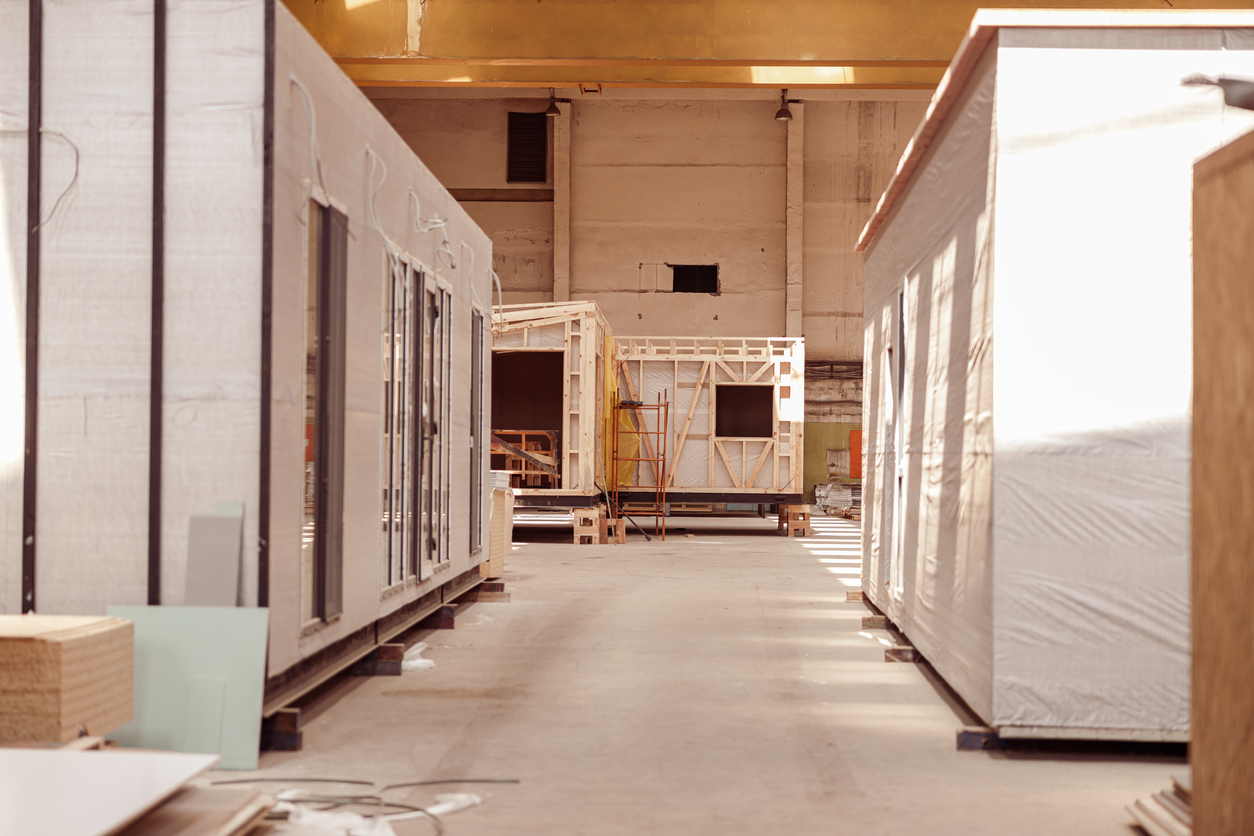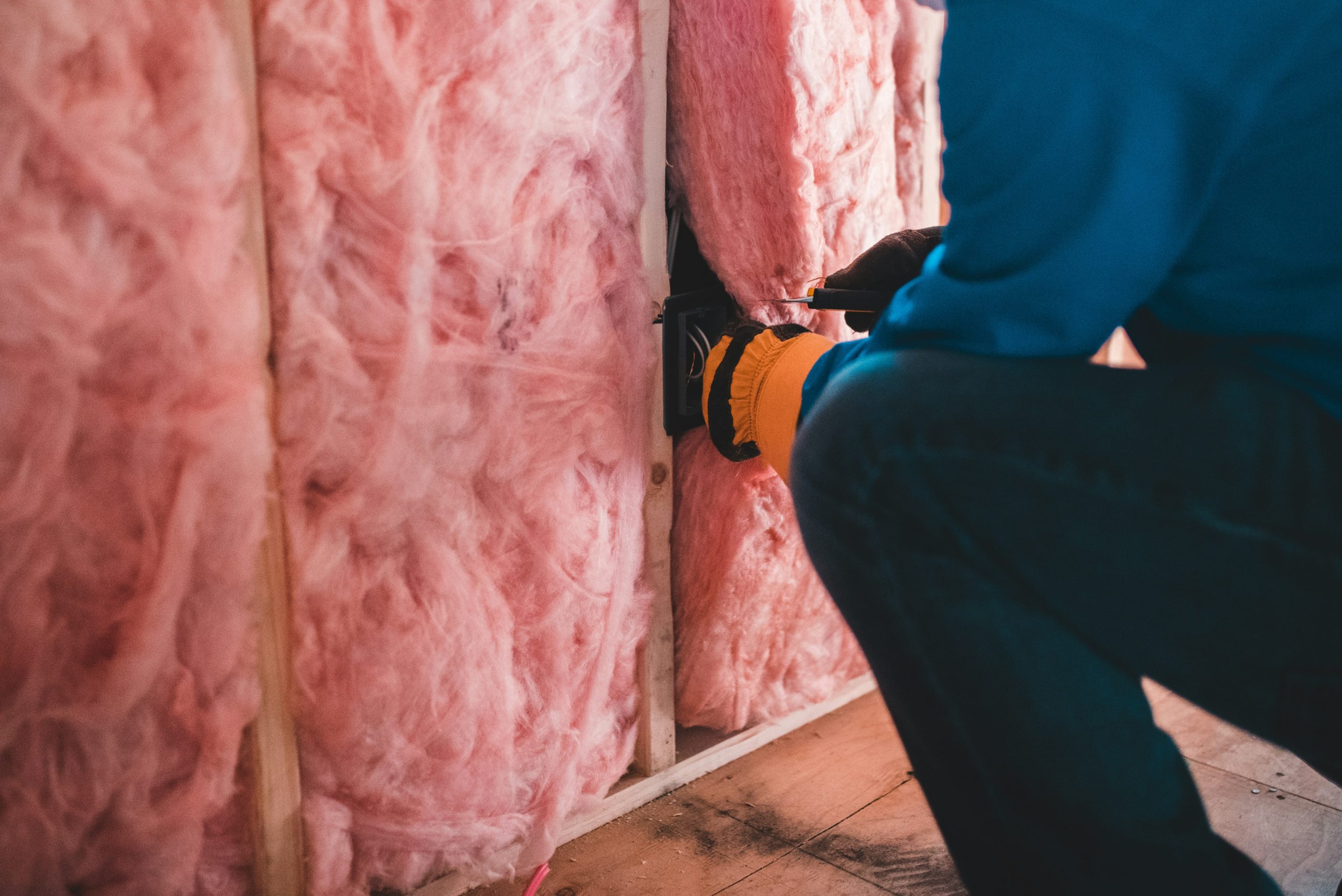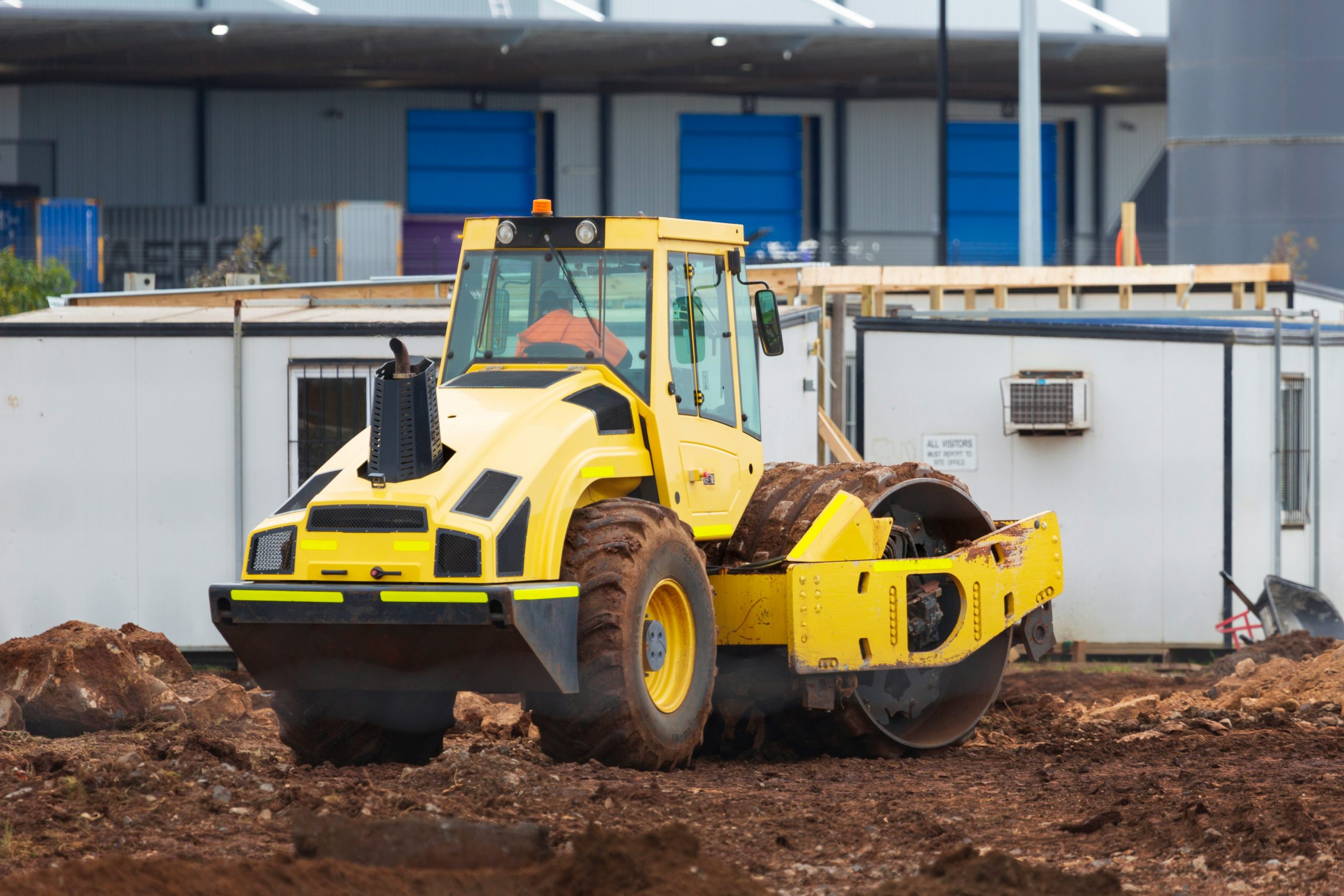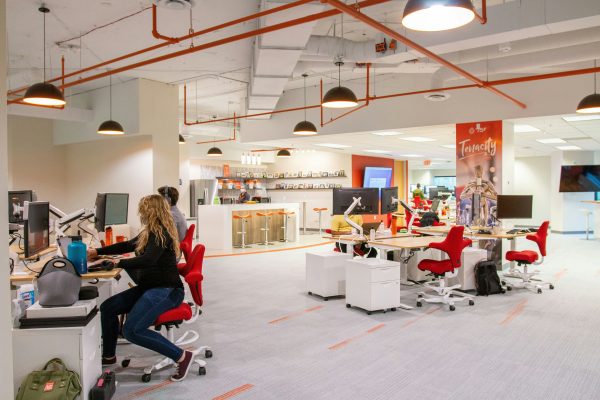In a world where businesses are increasingly committed to eco-consciousness and cost-effectiveness, modular offices have emerged as a game-changing solution.
There are many economic and environmental benefits associated with modular offices. Not only are they able to fulfill organizational needs, but they also contribute to global sustainability goals. Since modular offices are manufactured in a controlled environment, there is far less waste than traditional construction methods. And, as the offices are manufactured at a separate location, the turnaround time for project completion is much faster than other options. At the same time, modular offices are built using green practices and high quality insulative materials, which results in a more energy efficient and cost-effective option for just about any business.
What Are Modular Offices?
One of the most important aspects of modular office design is that they are manufactured in an off-site controlled environment. Then, once they have been completed they are transported to the final location and assembled. Unlike traditional construction methods, modular buildings are prefabricated, meaning they are constructed in sections that are designed to fit seamlessly together. Thanks to the factory setting, the manufacturing process is much more precise, results in far less material waste, and features enhanced quality control methods.
Economic Benefits of Modular Offices
There are many economic benefits associated with modular offices that range from lower construction costs to the flexibility to scale up and down as business needs change.
Lower Construction Costs
When it comes to modular offices, one of the biggest benefits is the cost savings. Since the sections are constructed in a controlled environment, the actual construction time is reduced substantially. There are no delays due to weather or short staffing because each section is built within the manufacturing facility. The prefabrication process also allows companies to optimize the materials used, which not only helps to minimize waste but also lowers the actual materials cost. This streamlined approach can reduce costs by as much as 20%, making modular offices a more economically viable solution.
Reduced Construction Time
Another benefit associated with this off-site construction is that while the modular office is being constructed off-site, a separate team can be on-site preparing for the final assembly. By having two separate teams working at the same time, the construction time is dramatically reduced. While a traditionally constructed office may take several months or even years to complete, modular offices can be installed in a matter of only a few weeks.
Scalability and Flexibility
Due to the way that modular offices are built, they are also highly scalable. As your business grows and its space requirements change, the available space can be expanded or reconfigured with ease. This type of flexibility is valuable for just about any business that is experiencing rapid growth. This approach also allows new modules to be added, removed, or rearranged as needed. And, it provides an efficient way for any business to scale up or down depending on their current needs.
Financial Incentives for Eco-Friendly Construction
Then there are the financial incentives for eco-friendly construction. In some locations, there may be certain tax breaks, grants, or other financial incentives available to businesses that invest in sustainable practices. Modular offices are built using sustainable construction methods, which allows them to qualify for many of these benefits.
Environmental Benefits of Modular Offices
Beyond the economic benefits associated with modular offices, there are also quite a few environmental benefits as well.
Reduced Construction Waste
For starters, there is far less material waste associated with modular office construction. Construction waste is a big concern associated with traditional building methods. After all, most of this waste ends up in landfills and contributes to the ever-growing problem of environmental pollution. However, modular construction is designed to minimize the amount of waste. By fabricating the sections in a controlled factory environment, every aspect of the manufacturing process is precisely controlled, resulting in far fewer materials being discarded.
Lower Carbon Footprint
With traditional construction methods, teams of workers will need to commute to the worksite every single day. Depending on the location, the amount of fuel and carbon emissions that are created can be substantially higher than with modular offices. While workers will still need to commute to the manufacturing plant, the commutes are generally much shorter and result in a smaller carbon footprint.

Energy Efficiency in Modular Buildings
Most modular offices are specifically designed with energy efficiency in mind. The sections or modules incorporate energy-saving elements like advanced insulation, energy-efficient windows, and sustainable heating and cooling systems. Moreover, as these buildings are designed in a factory setting, they can be constructed more efficiently than with traditional construction methods. This commitment to energy efficiency not only benefits the environment, but it results in lower utility bills for the business.

Reduced Land Disturbance
As the buildings themselves are manufactured off-site, there is far less disruption at the building site. With traditional construction methods, all of the trees in the immediate vicinity need to be cleared, the soil must be compacted, and other natural elements destroyed. However, modular construction requires far less site preparation, which helps to preserve more of that natural landscape. This ultimately helps reduce the ecological impact of the construction process.
Sustainable Materials and Eco-Friendly Design Options
Then you have the sustainable materials that are used in the construction process. Modular offices are often built with sustainability in mind. They use recycled steel, locally harvested wood, green roofs, rainwater collection systems, and even solar panels. All of these design elements help businesses reduce their reliance on nonrenewable resources, making modular offices the more environmentally friendly option.
Key Design Considerations for Modular Offices
When choosing to go with modular offices, there are several design factors that you will need to take into consideration.
Adaptability and Customization
For starters, you have the adaptability and customization aspects of modular offices. Most modern modular offices can be customized to reflect any company’s branding aesthetic. Unlike earlier modular designs, today’s modular industry provides you with a wider range of choices for layouts, finishes, and materials. Businesses today can choose from a larger selection of modular offices that better align with their corporate identity while still incorporating sustainable materials and energy-efficient features.
Health and Well-being of Employees
Next is the health and well-being of the employees who work within a modular office space. Since modular offices are constructed using non-toxic building materials, they are generally safer than traditionally constructed spaces. You can order modular units that feature advanced air filtration systems, and large windows to provide workers with ample natural light and a healthier work environment. By improving the overall working conditions, businesses can enjoy higher productivity and employee satisfaction levels.
Photo by Sarah Dorweiler on Unsplash

LEED Certification and Modular Buildings
More importantly, most modular office manufacturers are LEED-certified. LEED, which stands for Leadership in Energy and Environmental Design is a globally recognized symbol of sustainability. This certification acknowledges that a business focuses on reducing energy consumption, minimizing waste, and improving indoor environmental quality. As a result, using modular offices that are LEED-certified, allows a business to showcase its commitment to sustainability.
Common Applications of Modular Offices
Modular offices have many different applications across various industries, so let’s take a closer look at some of the most common applications.
Corporate Offices
When it comes to corporate offices, modular office spaces provide a flexible and affordable solution for companies of all sizes. Due to the flexibility of modular office construction, corporate offices can add, remove, and rearrange the workspace in order to fulfill current business needs.
Healthcare Facilities
Healthcare facilities can also make use of modular offices. Modular clinics allow healthcare providers to set up facilities quickly and efficiently. Healthcare facilities can rapidly expand their operations simply by adding more modular sections to their existing facility. And, due to their ability to be transported, modular clinics can be quickly and easily placed in more remote locations.
Educational Buildings
Then you have educational buildings. Modular offices are more commonly used in educational settings than anywhere else. In Florida, for example, a US state that sees multiple hurricanes every single year, virtually every school has at least 2 to 3 modular classrooms on the campus. They are used to accommodate additional students, handle special needs classes, and can even be utilized while repairs to the main building are being done after a storm.
Industrial and Construction Sites
Modular offices are also an ideal choice for temporary workspaces on construction sites or in remote industrial locations. They help to provide essential office facilities without the need for the installation of any permanent infrastructure. They allow businesses to address specific industry needs in a versatile manner.

Why Modular Offices Are the Future
Modular offices bring a well-balanced combination of economic efficiency and environmental stewardship to businesses around the globe. Not only do they provide substantial cost savings, but their quick construction times and flexibility allow businesses to adapt as they grow. Their use of sustainable materials, and reduction in construction waste, help modular offices to align with eco-friendly building practices, reducing their carbon footprint. With countless benefits that span cost-effectiveness, rapid scalability, and a sustainable design, modular offices are the perfect solution for any forward-thinking business.

